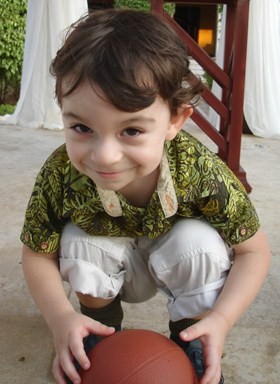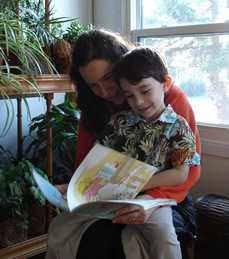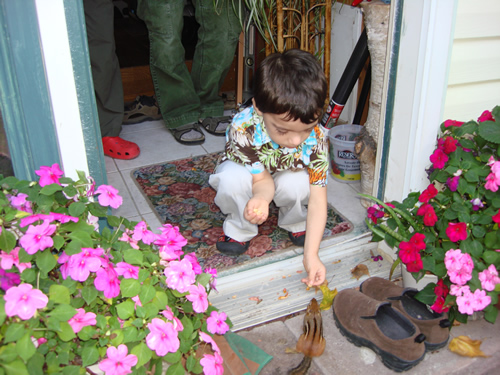
Share Focus on Learning with someone that you know or Bookmark it for future reference:
“One of the greatest gifts adults can give—to their offspring and to their society—is to read to children.”
Carl Sagan, astronomer, astrochemist, and author
“Reading aloud with children is known to be the single most important activity for building the knowledge and skills they will eventually require for learning to read.”
Marilyn Jager Adams, Research Professor of Cognitive and Linguistic Sciences at Brown University
“We read to know we are not alone.”
C.S. Lewis, literary critic, radio broadcaster, essayist, author (The Chronicles of Narnia, The Screwtape Letters)
“It is not enough to simply teach children to read; we have to give them something worth reading. Something that will stretch their imaginations—something that will help them make sense of their own lives and encourage them to reach out toward people whose lives are quite different from their own.”
Katherine Paterson, award-winning children's book author (Jacob Have I Loved, Bridge to Terabithia, The Master Puppeteer)
Feature

Growing Potential—Jacob, who has been read to consistently from birth, is a happy, confident child with a strong family bond and remarkable appetite for learning.
Reading to Children has Big Payoff
Reading forges education bonds that create a legacy of success
Four-year-old Jacob has a voracious appetite for books. When he goes to the library with his mother, Kate Singer, he brings home 20-30 books at a time despite having a large collection of children’s literature at home.
Both parents—Singer, who has been supply-teaching junior kindergarten (JK) to grade six for 13 years in Toronto and her husband Xaviero de Cervantes, a sculptor—confess to a long-standing love affair with books.
That love of books runs so deep that when Jacob was but a few hours old, his father began reading to him the much-loved children’s classic The Wind in the Willows.
“Reading to newborns? Onion sauce!” some might say.
But reading to babies is neither new nor radical; community literacy programs like Books for Babies suggest it is a surefire investment. Babies have an acute sense of hearing and research suggests that budding literacy ability begins this early. Experts agree that babies who are exposed to lots of talking, singing and reading tend to do better in school.
“Listening as their parents talk to them is one very important way that babies begin to learn language. And strong language skills are among the best predictors of later reading and writing abilities,” writes Dr. Robert Needlman on the Dr. Spock website.
According to an October 2002 article in the Journal of Extension, reading to children is “consistently linked with better school performance.” Furthermore, when fathers take an active role in nurturing their children, children “have increased self-esteem, healthier relationships with peers, healthier sex-role development, and access to greater financial resources.”
De Cervantes had these latter benefits in mind when he began reading to his newborn.
“It didn’t matter to us that he had no idea what the words meant, but it helped father and son to bond,” Singer said.
Research suggests that the resulting educational bond that forms when parents read to children is enduring. It becomes a legacy of family literacy that lasts for generations, says The National Center for Family Literacy (NCFL) website.
Literacy begins at home

Reading has consistently remained part of Jacob’s daily routine.
The payoff has been huge. Jacob not only loves books, he has a remarkable attention span as well. When he comes home from JK, he can sit with his mother and read for over an hour.
Singer said that as an educator she understands the importance of literacy. Nevertheless, literacy begins at home not at school. It’s a parent’s responsibility to “impart a love of reading,” she said.
Parents should be selective in their choices of literature, she said. Authors who use language creatively and present characters that “have genuine humanity” are best.
“Books that touch the soul and make children feel a range of human emotions have the most value in promoting a love of reading,” she added.
William Steig's Sylvester and the Magic Pebble is one of her favourites, she said. “It’s the story of an endearing little donkey who finds a magic pebble and accidently turns himself into a rock and is separated from his family for months.”
Singer said Jacob was so touched by Sylvestor’s plight that he had tears welling in eyes as he listened to the story.
Jacob’s literacy acquisition is a family affair. “All family members take part in reading to Jacob. Both my husband and myself, as well as grandparents spend time reading to Jacob.”
Because Jacob's father and grandmother are Spanish, he can understand Spanish children’s songs and books. He is also exposed to Hungarian from his grandfather who lives with him.
Literacy is more than reading

Singer stresses that literacy is more than reading. It also encompasses activities like rhyming, music, culture, language, nature, writing, counting and measuring. For that reason the family creates a rich environment for building literacy skills with routines, activities and materials close at hand.
Music has had great impact, she said. Because classical music and opera are always playing at home, Jacob recognizes some singers and composers.
“We’ve also been playing children's CDs to Jacob since he was born,” she said.
The family builds Jacob's numeracy skills with “everyday things like setting out the cutlery for the family at dinner time,” she said. “Jacob loves to cook and bake with me and helps out with measuring ingredients. We also practice counting and identifying numbers, as well as learning shapes through crafting.”
A couple of years ago, Jacob's father cut out an array of shapes and placed them on the living room ceiling. In the evening after returning from work, de Cervantes would turn off the lights and spotlight each shape with a flashlight.
“The shapes were actually constellations for a light show!” Singer said.
The wide assortment of fun literacy activities that parents can share with their children means that creating a literacy-rich family environment can always be an adventure. Reading, however, remains foundational. Since younger children often “ask to hear a favourite book over and over again,” Singer advises parents to “be patient and obliging as repetition helps children to learn.”
She offers this proviso: “Read to your child for as long as he or she is attentive. Don’t force it on them if they are not in the mood.”
For more accomplished readers, she suggests including in their reading material a subscription to a magazine they enjoy. But there is no reason to stop reading to a child just because they can read, she said. Good habits are worth keeping.
NOTE TO READERS: The names in this article have been changed to protect the identity of the child.
Elementary Newsletter
Volume 11 Issue 1
In this Issue...
![]() Feature: Reading to children has big payoff
Feature: Reading to children has big payoff
![]() Feature: Childhood music lessons develop brainpower
Feature: Childhood music lessons develop brainpower
![]() Message from the President: Literacy—An issue that touches us all
Message from the President: Literacy—An issue that touches us all
![]() Message from the President: Music lessons boost grades
Message from the President: Music lessons boost grades
![]() Principal's Message: Quality, customizable education
Principal's Message: Quality, customizable education
![]() Tips and Triumphs: Environment influences brain architecture
Tips and Triumphs: Environment influences brain architecture
![]() Tips and Triumphs: Call for submissions
Tips and Triumphs: Call for submissions
![]() Tips and Triumphs: Educational links for children
Tips and Triumphs: Educational links for children
![]() Tips and Triumphs: Links for Literacy
Tips and Triumphs: Links for Literacy
More Newsletters
Register to receive Focus on Learning newsletters and access to the lounge area. Register here




